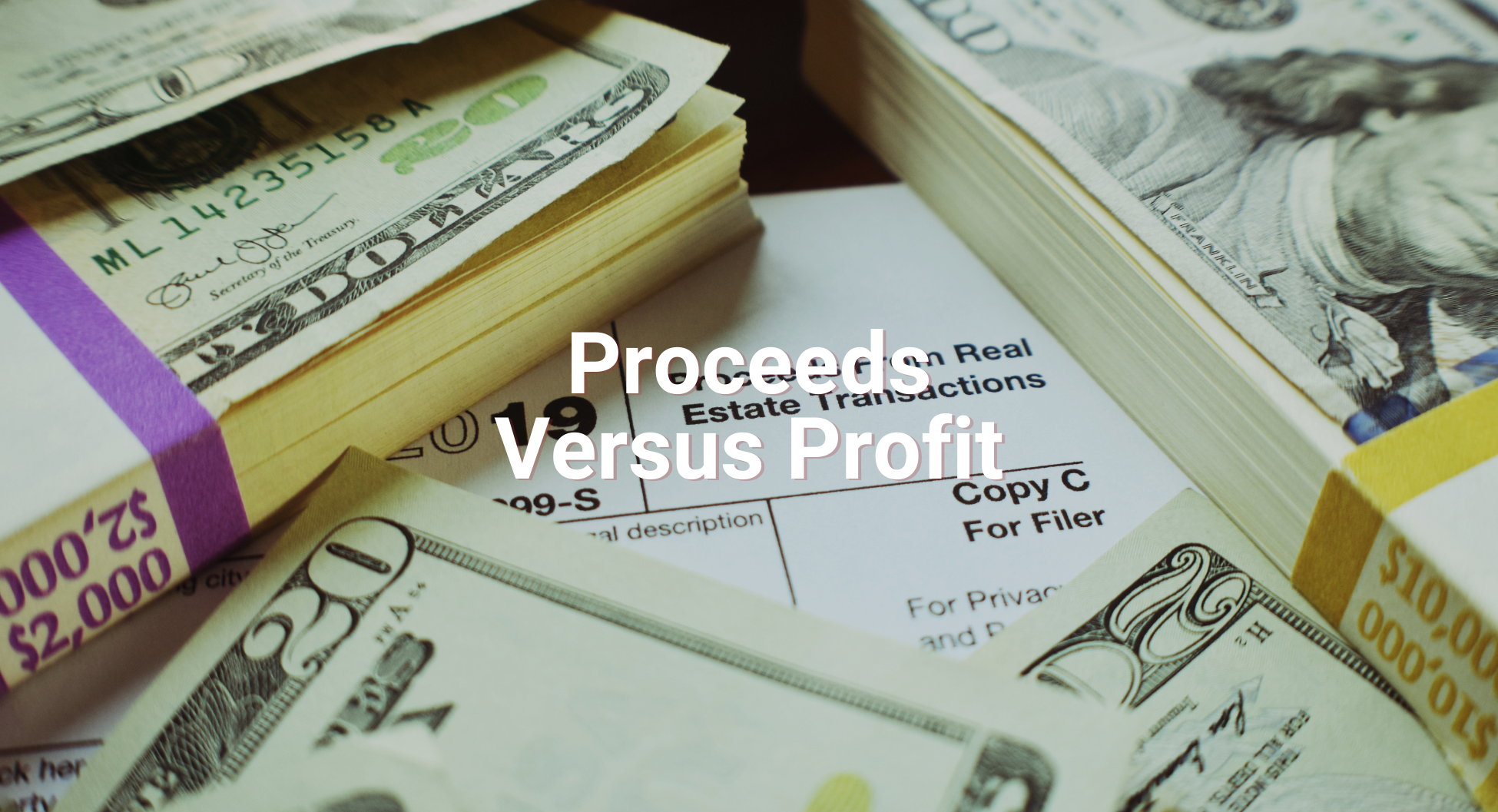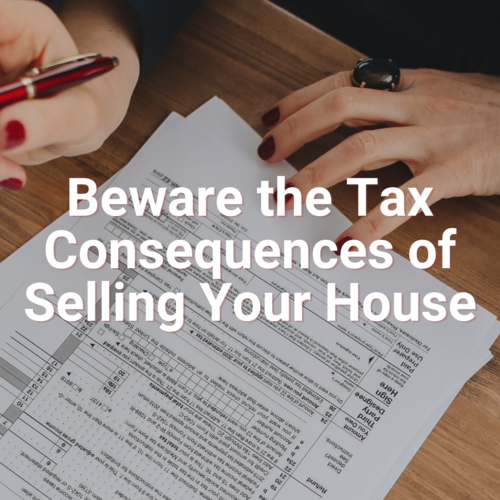Last week, I shared information about how to avoid nasty surprises from Uncle Sam when you sell your house, specifically regarding capital gains tax. Since then, it’s come to my attention that some folks don’t really understand the difference between proceeds and profit, which is key to understanding how you’ll be taxed.
The proceeds are the money you walk away with after the sale. They include the sales price minus the amount you owe on the loan minus the costs associated with selling your house.
Capital gains taxes are calculated based on profit rather than proceeds, which is a whole different calculation. Capital gains are defined as the amount by which the proceeds from the sale of a capital asset (in this case, your house) exceed the basis. The value of your house for tax purposes is called the tax basis and calculating it involves several factors. Profit is the sales price minus the allowable costs of selling your house minus your basis in the property.
You’d think the tax basis would simply be the original purchase price of a property, but that’s not the case. Usually, the tax basis is the purchase price plus some closing costs, such as title insurance. (If you are dealing with more complex transactions, such as exchanging investment properties, things get a bit more complex, but let’s stick with your primary residence for now.)
Once you have the tax basis for your home, it can increase if you make certain types of improvements. Improvements are major renovations or changes, such as adding a bedroom or replacing the roof. The line between major maintenance or repairs and improvements can get very blurry.
An increase in your tax basis can be good if you plan to sell because a higher basis will lower your capital gains and therefore, your capital gains tax liability (if the capital gains are above a certain threshold).
Let’s return, for a moment, to the line between an improvement versus a repair. On a personal residence, a new roof is often considered an improvement. On an investment property, it is generally considered a repair. So, not only is it sometimes difficult to figure out whether an update to your home meets the criteria to be considered an improvement, it is also important to note that primary residences are treated differently than investment properties.
I once had an IRS auditor require that I capitalize the cost of repairing a sewer lateral from an apartment complex to the sewer line in the street. While I felt this was a repair because the lateral was already there (I was just fixing it), the auditor insisted it was a capital improvement. Because this was an investment property, I wanted this to be a repair that I could expense in the year that I paid for it rather than having to depreciate it over years.
Regardless of whether your expense is an improvement or a repair, I highly recommend keeping good records. If you spend $25,000 on a new roof for your home, you’ll want to be able to prove that you spent that money when it comes time to sell.
One of the hidden gotchas in this world is the advice to keep tax returns for only seven years. In fact, you should keep tax records back to the acquisition date of any given property. Keep ALL tax records so you can prove expenses versus improvements.
If you hold investment properties and have done a 1031 exchange, keep records of all properties involved in the full history of the exchange. If you are going to own investment property, you’ll need a large filing cabinet or a large hard drive. I recommend paper back-ups for electronic records. Why? Because there are two types of disc drives: those that have failed and those that will fail.
Before you make any financial decisions, be sure to talk to your accountant or financial advisor. I am neither.
If you have questions about property management or real estate, please contact me at [email protected] or call (707) 462-4000. If you have an idea for a future column, share it with me and if I use it, I’ll send you a $25 gift certificate to Schat’s Bakery.
Dick Selzer is a real estate broker who has been in the business for more than 45 years.


